M e e t t h e V i n t n e r s
J u s t a s o u r w i n e s t e l l a u n i q u e s t o r y o f p l a c e a n d c h a r a c t e r i n e v e r y g l a s s , o u r t e a m o f v i n t n e r s e a c h h a s t h e i r o w n s t o r y t o t e l l a b o u t h o w t h e y g o t i n t o t h e w i n e b u s i n e s s , w h a t k e e p s t h e m i n i t , a n d w h y t h e y l o v e o u r c o o l - c l i m a t e E l g i n V a l l e y . T o g e t h e r , t h e s e t a l e s f o r m o u r s t o r y , r o o t e d i n p e o p l e , p a s s i o n , a n d p l a c e .
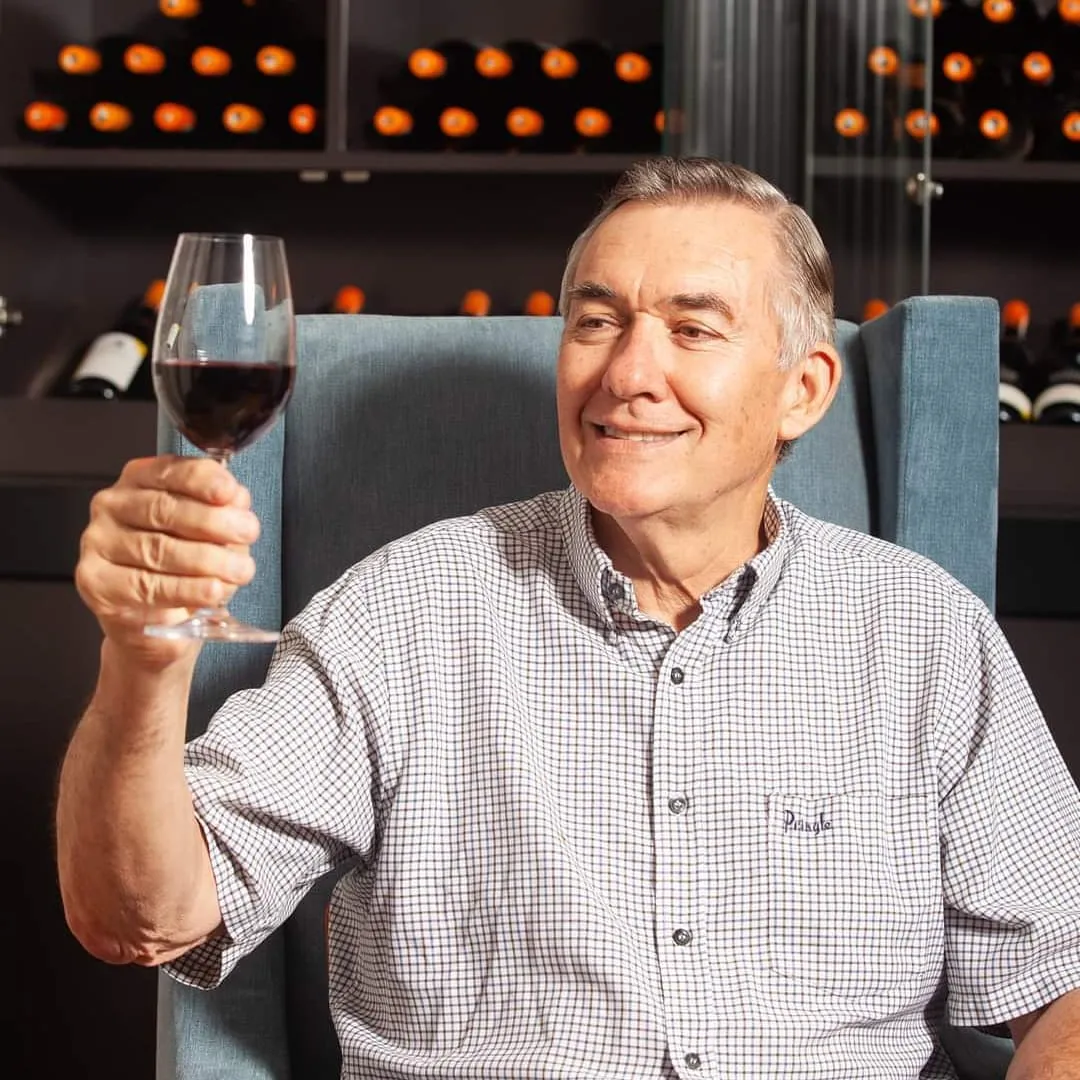
Dr Max Hahn, a founding partner at Elgin Vintners, knows the history of the Elgin Valley well. In fact, the Elgin Orchards farm sparked his dream of owning an apple farm “one day,” Today, he lives in what is believed to be one of the oldest houses in the valley, the tollhouse at the bridge over the Palmiet River that runs through the valley.
D r M a x H a h n
F o u n d e r & O w n e r
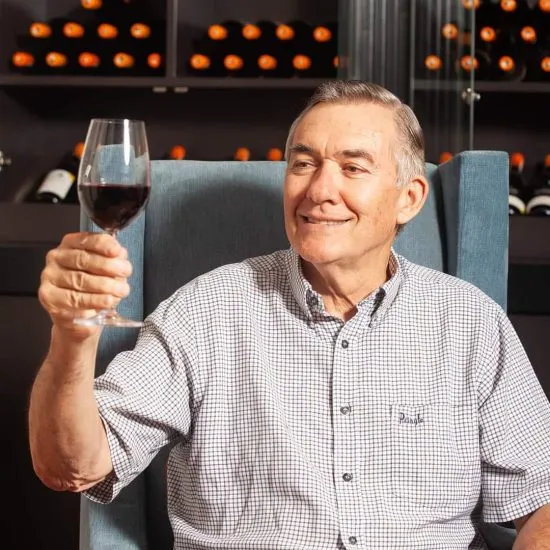
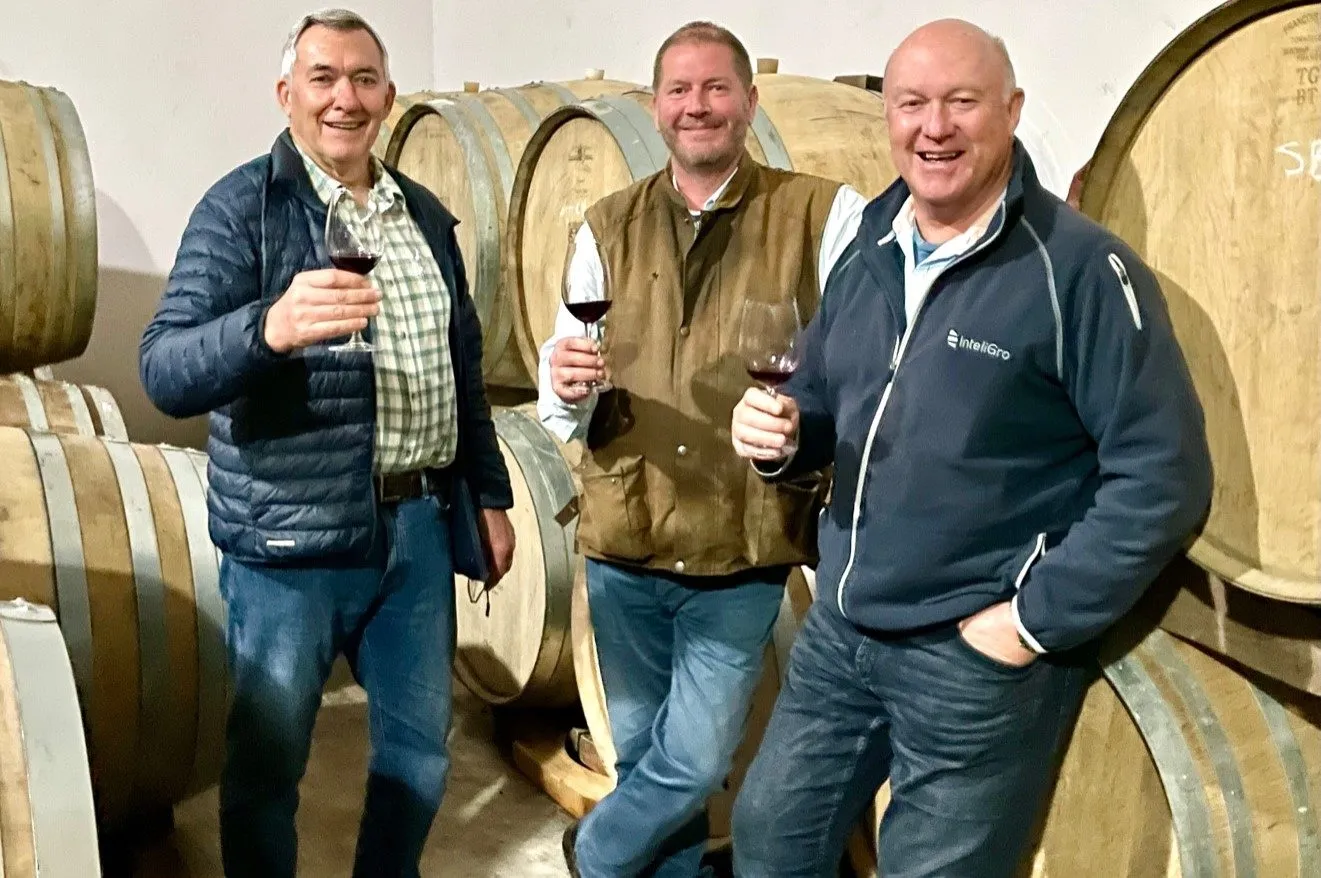

He knows the stories of the farm’s original owner Edward Syfret, neighbour Jack Green (and the foefie slide, or rope-and-pulley system used to transport apples over the river to his packshed), and the Denniston family who offered recuperation in the Ridgelands manor house on the farm for injured troops returning from World War II.
As a tribute, those families are remembered in the names of the guest bedrooms in the stately manor house that is now home to Elgin Vintners,
luxury accommodation for visitors and a scenic venue for special events.
Interestingly, Max’s father was one of the injured troops nursed back to health at Ridgelands and befriended the Denniston family. As a result, young Max visited Elgin Orchards and Ridgelands manor often. These visits inspired his dream of retiring to an apple farm in the area.
But, he says, “I never dreamed I would own THIS farm”.
That turning point in 2001, when he returned to Elgin and bought the farm, became a defining chapter in our story—a blend of fate, timing, and deep personal roots. By then, he had earned degrees in science and medicine and had a long business career. It was fate, timing, and the right price—plus confidence from knowing the farm’s people and history. In 2001, he acquired Elgin Orchards and its apple and pear business.
For many, there is a romance about growing vines and making wine. For Dr Hahn, the diversifying into grapes was a business decision prompted by a downturn in the apple industry, increasing signals of global warming, and expert views that the cool climate and unique terroir of the Elgin valley had the potential to make excellent wines.
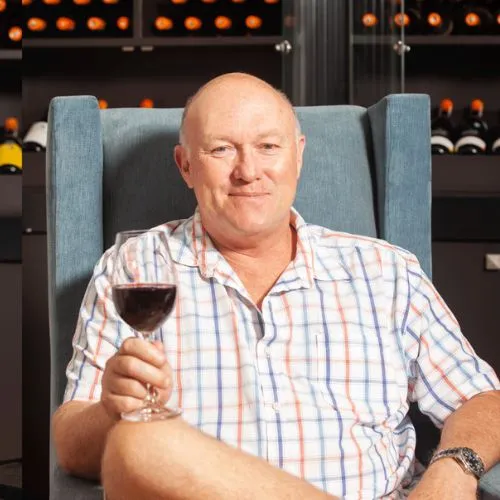
For James Rawbone-Viljoen, the excitement of the wine business is about personal interaction with wine lovers and growing Elgin Vintners’ global family of loyal followers.
“I often say that, for me, growing apples and pears is a very scientific process, as it is with grapes, but once you’ve grown that apple or pear, packed it and sent if off the farm, you have nothing more to do with it.”
J a m e s R a w b o n e - V i l j o e n
F o u n d e r & O w n e r
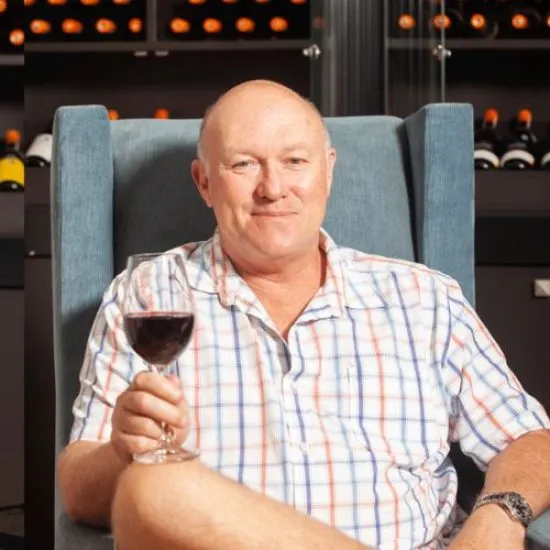
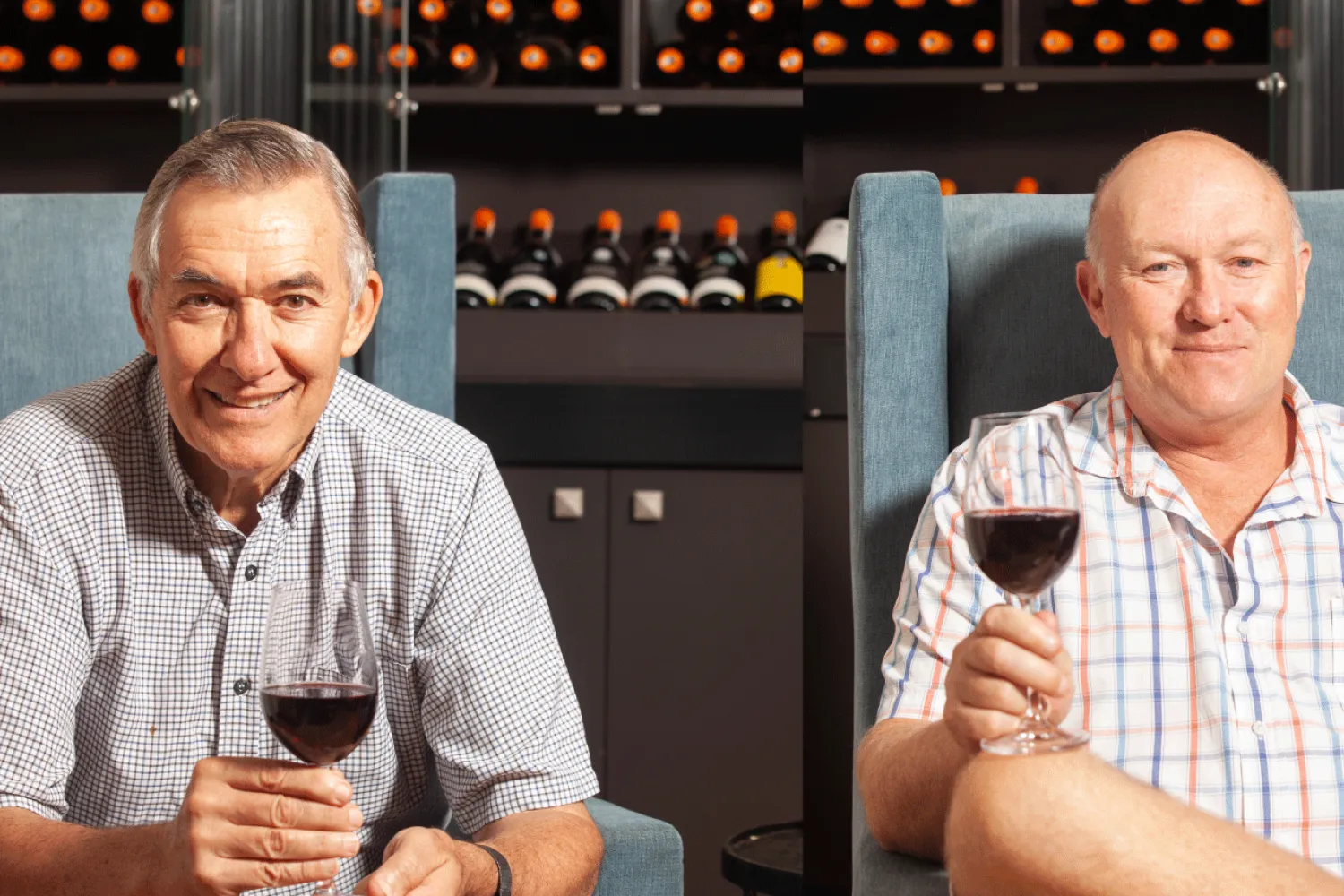

“The real attraction for me, with grapes and with wine, is having that personal interaction with the consumer. To sit across the table and share a glass of wine, a product that I love, with people and see their satisfaction in enjoying your product – that’s what I get a kick out of.”
Not content with simply growing grapes to harvest, James’s passion is for the making and the selling of the wine, opening up new markets for Elgin Vintners through personalised wine tasting experiences and giving the brand a face and a personality.
“Through private tastings and personal experiences, we’ve developed a strong following of people who we have touched and have an appreciation for what we do, and we appreciate their loyalty.”
James’s Elgin roots run deep. He grew up in Elgin Valley, on Oak Valley, the farm owned by his family for more than a century.
His career took other paths until the early 1990s. Then, he tried apple and pear farming. Like many others, he later moved into grape and wine production on Blauwkrans and Helderfontein. Finally, he became a founding partner in Elgin Vintners. This marked an evolution in our story, as the brand matured alongside his experience.
“Elgin had long been known for its potential as a premium wine-producing area, due to its cool climate, altitude and abundant water,” he says
While partner Dr Max Hahn has “more of an international palate”, he says, “I can’t find a wine in the world that’s better than our Elgin wine.”
“Local is lekker (great) for me and local is Elgin. I struggle to find the same quality anywhere as that produced in our valley.”
He is optimistic that Elgin Vintners is on a solid footing to continue making premium wines. Also, it has the stage to showcase what this unique appellation is capable of.
On a lighter note, he says, “when you have a bad day at the office, you could come home and eat an apple and that’s great. But compared to opening a bottle of your wine? That’s completely different!”
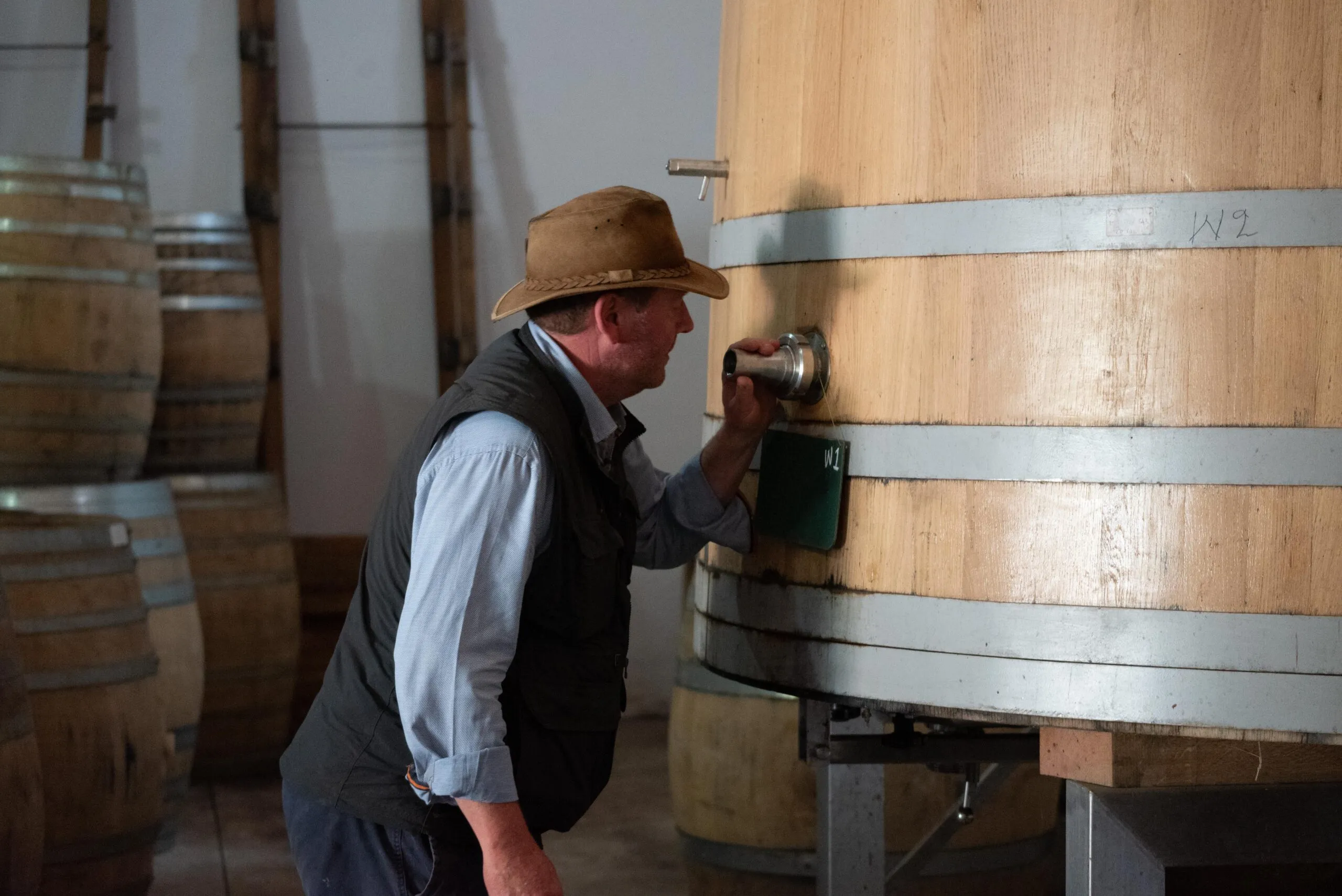
Gus began working in the wine industry in 1989. His first job was at a wine shop on Oxford High Street for the well-known retailer Oddbins Wine Merchants. A year later, at just 20, he was promoted to oversee Oddbins’ entry into the fine wine market. This led to managing two branches in Farringdon Street and Notting Hill Gate in London.
By 1993, he had arrived in Beaune, a town in Burgundy, France. There, he fell in love with Pinot Noir, Chardonnay, and the region’s wine and food culture. Famously, he resigned by fax from a cellar behind L’Église Notre-Dame at an unearthly hour of the morning. Gus then went on to study viticulture and oenology in Beaune while working for Maison Champy, the oldest négociant house in Burgundy.
G u s D a l e
M a n a g i n g D i r e c t o r a n d C e l l a r M a s t e r
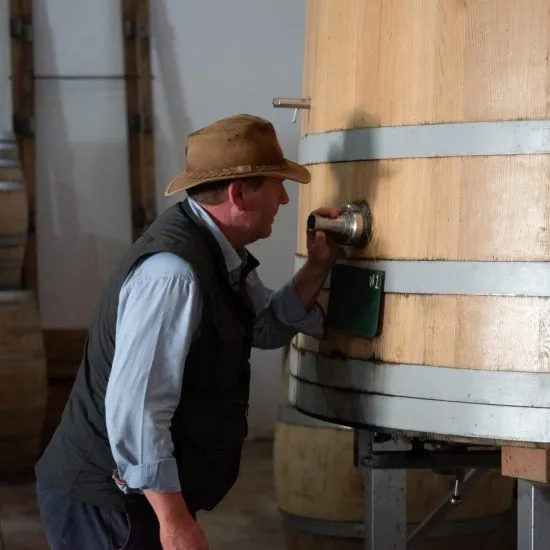
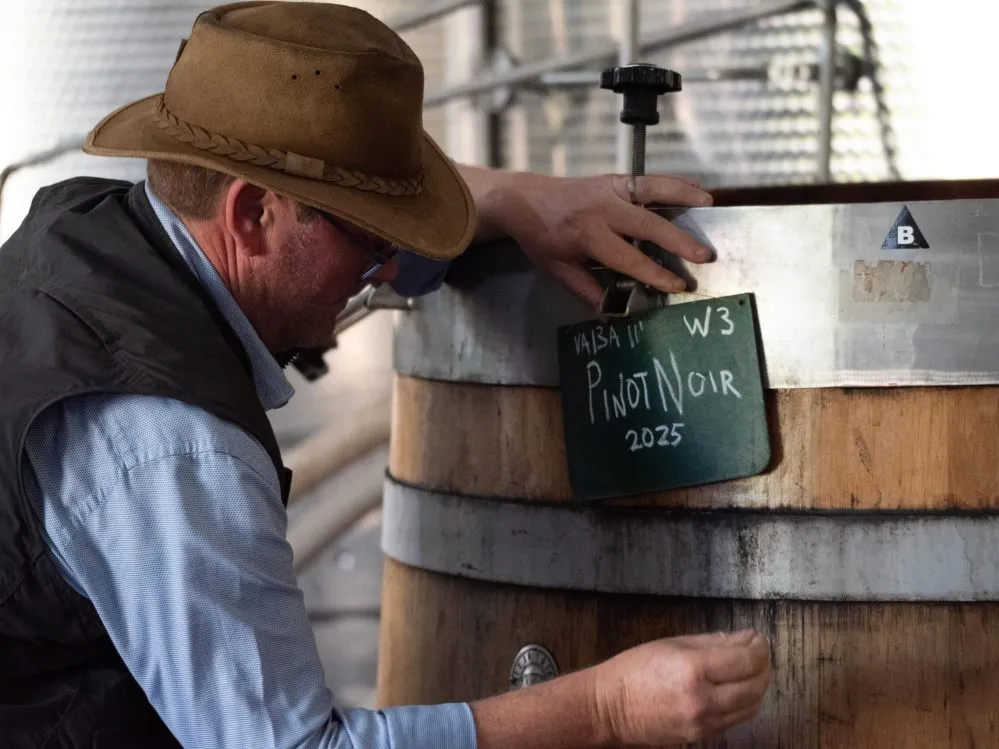

Once qualified, he managed a small Beaune-based domaine. It included Grand Cru vineyards in the Côte de Nuits and Premier Cru plots in the Côte de Beaune. Importantly, he began converting the vineyards to organic farming at a time when few others were doing so. Between 2000 and 2006, he spent four months yearly making wine in Stellenbosch’s Helderberg region. In 2006, Gus moved permanently to South Africa and took a farm management job in Hemel-en-Aarde Valley. He went on to spend a total of six years farming and making wine there, while also spending several years in the Helderberg region with a fifth-generation Afrikaans grape and wine producer.
As early as 2004, Gus had the opportunity to make Pinot Noir from vineyards in Elgin. The region had long been his favourite, already identified for its ideal terroir and cool climate, perfect for Pinot Noir. In September 2022, he was invited to join Elgin Vintners—a challenge he gladly accepted. He made his first wines there in 2023. Three vintages in, Gus has transformed Elgin Vintners’ culture and production. Yet he remains committed to the site-driven wine philosophy at the heart of our story. He focuses on single-cultivar, premium wines. These wines reflect lower alcohol, fruit purity, sustainable practices, and a stronger international, carbon-conscious footprint.
Throughout his career, Gus has maintained a commitment to both innovation and sustainability. From pioneering organic viticulture in Burgundy to championing Pinot Noir in Elgin, his work reflects a deep understanding of terroir and climate. His experience across prestigious wine regions in both France and South Africa has shaped a winemaking philosophy grounded in quality, authenticity, and environmental responsibility—a legacy now embedded in the ongoing evolution of Elgin Vintners.

sustainability
S t e w a r d s o f t h e L a n d , C r a f t e r s o f F i n e W i n e
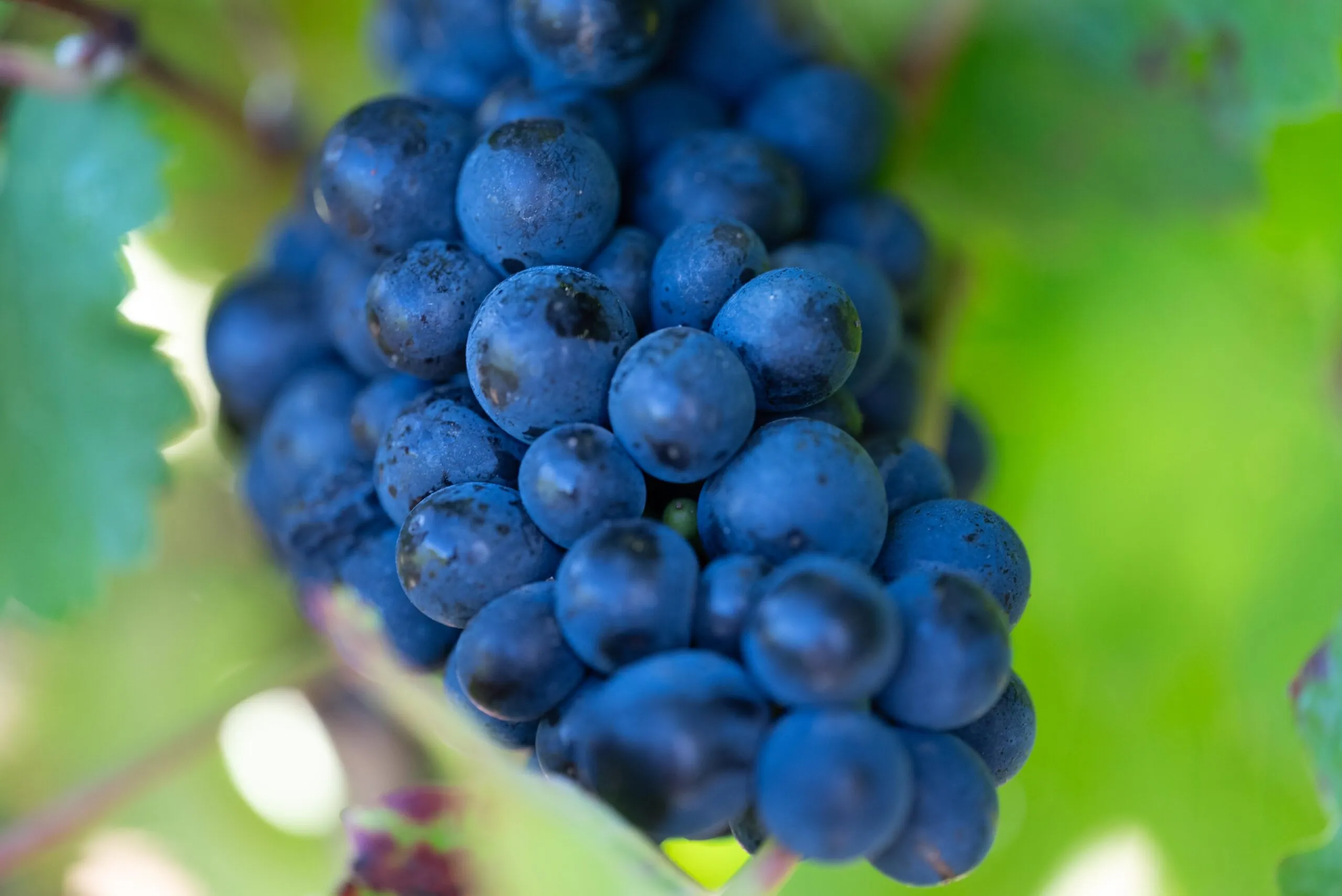
As part of the agricultural industry, we fully depend on our surrounding, just as it depends on us. That’s why we grow our produce organically and sustainably. Over the past decades the carbon footprint of the winery has been positive, which is something we’re really proud of.
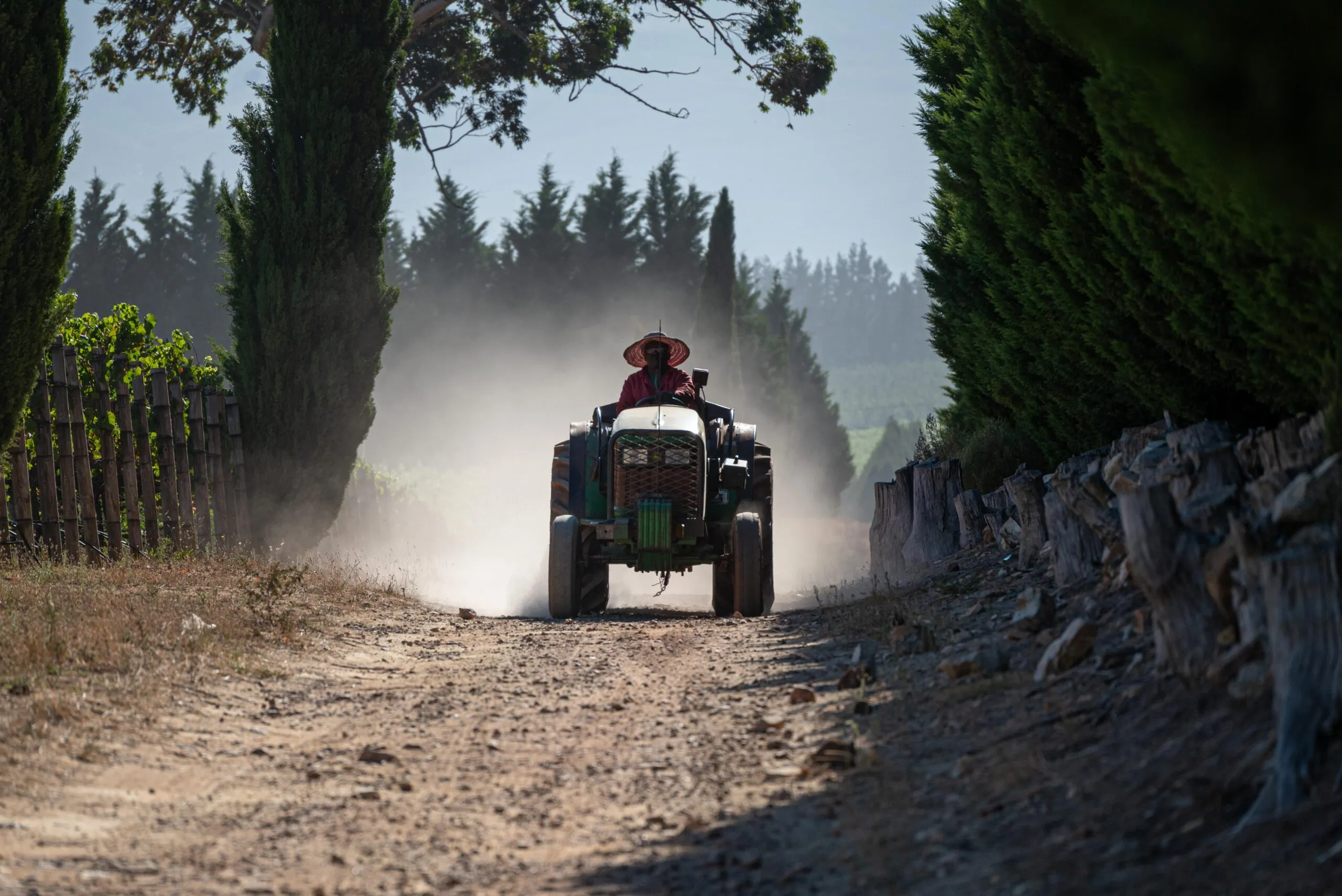

At Elgin Vintners, sustainability isn’t just a trend—it’s a responsibility we carry with pride. Nestled in the heart of the cool-climate Elgin Valley, our vineyards thrive in harmony with the natural landscape. From careful water management to minimal intervention in the cellar, our approach respects the land while delivering wines of exceptional quality. Ultimately, every bottle tells the story of a place where nature and winemaking walk hand in hand — both today and for generations to come.



